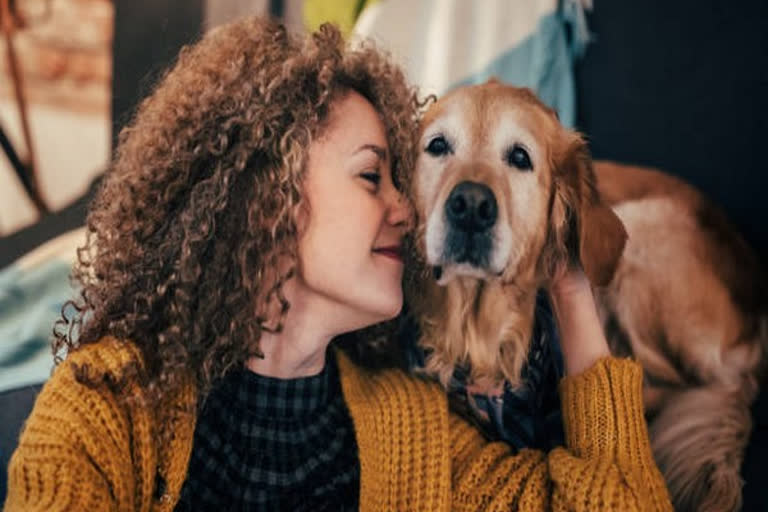Washington [US]: A new review published in the CABI journal Human-Animal Interactions offers counsellors additional perspectives to explore while working with clients who have lost their pets. The research highlights how during the COVID-19 pandemic, there was more opportunity for people to spend longer with their pets - relying on them to help maintain a sense of normality and provide security during periods of isolation.
Dr Michelle Crossley, Assistant Professor at Rhode Island College, and Colleen Rolland, President and pet loss grief specialist for Association for Pet Loss and Bereavement (APLB), suggest that pets play a significant role in the lives of their caregivers. However, they add that grieving the loss of a pet continues to be disenfranchised in society.
Dr Crossley said, "Perceptions of judgment can lead individuals to grieve the loss without social support. "The present review builds on research in the field of pet loss and human bereavement and factors in the impact of the COVID-19 pandemic on human-animal attachment. "A goal of the present review is to provide counsellors with perspectives to consider in their practice when working with clients who have attachments to their companion animals.
"It also aims to acknowledge the therapeutic benefits of working through the grief process to resolution as a way to continue the bond with a deceased pet." The researchers say that stigma associated with grieving a loss can complicate the healing process and that counselors would expect to see more clients wanting to discuss their grieving - particularly during the COVID-19 pandemic.
They add that while empathy may come more naturally when discussing human loss, there are other types of loss that are not acknowledged or given a similar amount of attention by society. This includes death by suicide, a lost pregnancy/miscarriage, death from AIDS and the death of a pet. Ms Rolland said, "When relationships are not valued by society, individuals are more likely to experience disenfranchised grief after a loss that cannot be resolved and may become complicated grief.
Also read:Study examines children's mental health during, after Covid pandemic
"The major goals of this review are to provide counsellors with an aspect to consider in their therapeutic work with clients dealing with grief and loss and present different factors that may impact how one grieves the loss of a pet. "It also discusses considerations for counseling that can be utilized to foster a supportive and non-judgmental space where clients' expressions of grief are validated."
Dr Crossley and Ms Rolland, in their review, suggest that having a safe space to discuss the meanings associated with the companion animal relationship is beneficial for moving through the loss in a supportive environment, leading to the resolution of the pain of the loss. Dr Crossley added, "When an individual loses a pet, it can be a traumatic experience, especially given the strength of attachment, the role the pet played in the life of the individual, as well as the circumstances and type of loss.
"Giving a voice to individuals grieving a disenfranchised loss is one way in which counsellors can help clients through pet loss. "It is also important to integrate pet loss work into counseling interventions and coping strategies that are already being used in the therapeutic space." The researchers believe that group counselling sessions in person or web-based chatrooms can both work as healing spaces for those working through grief.
Counselors can also engage both children and adults who are navigating pet loss by providing them with supplies and space to paint, draw, or use figures to draw out their anxieties and fears about the loss, they state. In conclusion, Dr Crossley and Ms Rolland argue that understanding the grief process of pet owners can better prepare professionals to foster non-judgmental spaces where clients can feel open to display their grief.
Furthermore, providing empathy and validating the feelings that any type of loss of a pet can create for the clients may lead to more open sharing among the community further enhancing the healing process and a possible societal shift in the recognition of grieving pet loss as a normative experience. (ANI)
(This story has not been edited by ETV Bharat and is auto-generated from a syndicated feed.)
